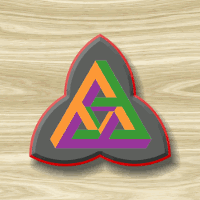MyDumpStatIsMA wrote:Sambot wrote:If the number is below the minimum required, or just really low, we'd allow a reroll. If it's still too low then we'd assign the minimum required and then let them improve with skill choices if possible.
As I've said, re-rolling is what I'd like to either eliminate or reduce.
Take this crappy attribute group I just rolled up today:
(snip)
If I hadn't been able to eliminate the ME penalty, there's no chance I'd play this character using the current rules. The only thing to offset the low ME would be a 1d4+3 roll, which couldn't bring any of my other stats to 20. But now I've got two stats that have bonuses (under my revised rules). Much more palatable.
Sorry. I don't understand all your math but I don't think the first one was terrible. A 6 isn't great but it's better than a 3-5. And like I said, if needed we'd just bump the attribute to the minimum. 15-17 is exceedingly good. A 22? That's winning the genetic lottery. It can happen but it shouldn't be common.
Curbludgeon wrote:A point buy setup can be fun. It needs to take into consideration a few factors: an assessment of power level, that certain stats are worth more than others, and that PS and Spd can run quite high.
The term IQ has some history, and I've replaced it in the past with something like Education. In lieu of a minor percentage increase I wouldn't mind it just granted an extra slot every 2 points above 10, or the like.
Curbludgeon wrote:A point buy setup can be fun. It needs to take into consideration a few factors: an assessment of power level, that certain stats are worth more than others, and that PS and Spd can run quite high.
The term IQ has some history, and I've replaced it in the past with something like Education. In lieu of a minor percentage increase I wouldn't mind it just granted an extra slot every 2 points above 10, or the like.
I've never enjoyed point buy systems.
I don't know about replacing IQ with Education. One can be very intelligent but not well educated. It would also seem to eliminate the possibility of self teaching.

 you some might think you're a
you some might think you're a  but you're cool in book
but you're cool in book 
 , with a bonus range of 14-18.
, with a bonus range of 14-18.